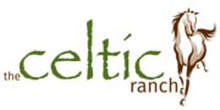After an all-too-brief visit in Chicagoland, we dashed down to Asheville, NC, to spend a couple of days visiting the Biltmore House and friends in that area. We remained “Passholders” for Biltmore after we moved and while we were trying to sell our house, since we still had a place we could “camp out,” and we have remained so. Currently, there is an exhibit of glass installation works by Dale Chihuly around the grounds which we wanted to see. There are “Chihulys” on permanent display in the atrium of the Joslyn Museum here in Omaha, which we find interesting, and, since this was the first major art exhibition at Biltmore and it brought together pieces from a variety of locations to be displayed on the estate grounds, it seemed especially interesting. The piece shown below is called “Sole d’Oro.” I found it unusually enjoyable. Although this IS a picture from the Biltmore web site, I do wish that I had taken it, but I do have others, just not as nice as this one.
In the hotel we were at in Asheville, I found a bottle of Strawberry Rhubarb soda made by the
We were only in Sylva for a few hours, but Bonnie did get a chance to catch up with some old friends for a few minutes. I didn’t get to campus figuring that there are very few folks I know left there and time was short. We did have dinner with Bonnie’s friend, Emily, and her family in Dillsboro at
On the way home, we drove by the sign for
I’ve strayed far from my original intention, however. This started out to discuss interesting and/or unusual signs which I’ve seen recently (not all on this trip).
For example, there was the huge three-dimensional ear of corn (12-15 ft. long and 3-5 ft, across (guesses) which was advertising Fair Oaks Farms in northern Indiana with the statement “Visit ear often” written on its side.
Or, there was the sign for the “Purple Toad Winery,” which suggested to me that their motto should be the “Home of the Drunken Gecko,” even though I do know that a gecko is not a toad.
Sign on the back of a truck: “Inedible Animal Food.” This does not make me believe that I’d want to feed whatever the truck was carrying to any creature, esp. not my cat, Fred.
The sign for a billboard company on a billboard: “Looking for a sign? This is it!”
The sign for the “First Samoan Assembly of God” made me wonder if there was a special deity for Samoans, but the Armenian Evangelical Church made me wonder how one could be evangelized into becoming Armenian?
The sign for “Minsky’s Pizza” got me curious as to whether making pizzas was had become of one of the great families of American Burlesque. (I’m probably too much of the theatre historian for my own good!).
The sign for the “Renovation Church” made me wonder if it was sponsored by HGTV?
There’s a stretch of less than fifty miles across Missouri where one can see signs for both “Yahweh’s Assembly in Yahshua” and “Yahweh’s Assembly in Messiah.” The similarities suggest to me a schismatic splintering of a local/regional (?) church, but I just find the signs interesting.
The “Vineyard Life Church” seems like a great place for wine drinkers and makes me wonder if their motto is “Where we worship the grape”?
The sign on that back of a truck for Bimbo Bakeries is just too suggestive to let pass, although this is a real company which actually makes Sara Lee, Thomas, Entenmann’s, Orowheat, Ball Park, and other brands of baked goods.
The sign quoting Ronald Reagan as having said “I’ve noticed that everyone who is for abortion has already been born” struck me as a bit non-profound since anyone who is against abortion has also been born.
This isn’t exactly a sign, but when I saw it I just couldn’t let it pass… (apologies to those with light colored hair – this IS stereotypical, but it IS funny!)
LLAP






 RSS Feed
RSS Feed